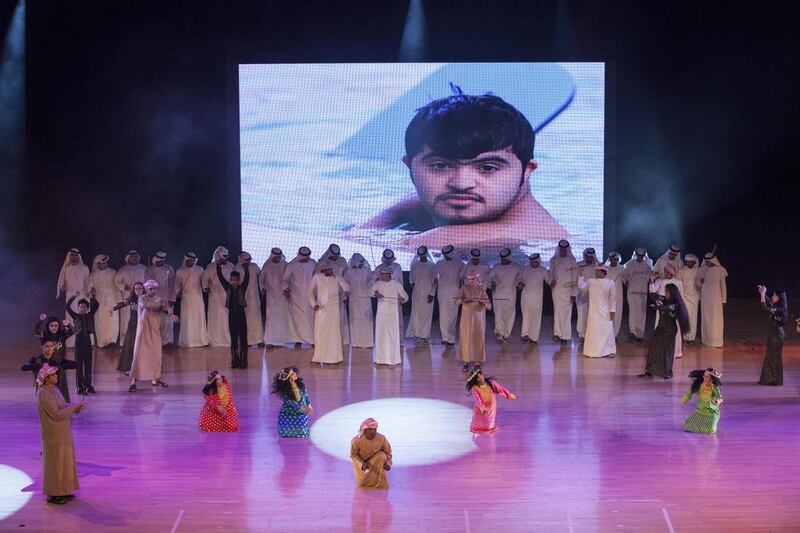DUBAI // Families of children with special needs, officials and representatives of large companies gathered yesterday to celebrate the 20th anniversary of the Rashid Paediatric Therapy Centre.
The school is one of several in the country for children with conditions such as cerebral palsy, Down syndrome and autism. It also caters to children with physical and hearing impairments. Currently, about 300 pupils, aged between 5 and 18, attend the school.
“We are trying to show what we have achieved over 20 years,” said Mariam Othman, general manager of the school.
The celebration, she said, was important for the school because it relies on fees – families pay Dh29,000 a year – and corporate support to cover costs.
“It costs a lot for the centre to get professional teachers for the children,” said Roqaia Al Ameri, from the school’s corporate support unit. “We have many children on the waiting list.”
“Educating a child with special needs requires a lot of resources,” said Rajini Correa, a special educator who teaches a class of eight pupils, aged 7 to 11, with cognitive disabilities. Corporate support is important for the school, she added.
Classes consist of fewer than 10 children and each has its own programme. Each child is approached differently, she said.
Ms Correa said the school had developed significantly in the time she has been teaching there.
“Eight years ago, when I came, there were no smartboards. Now, there is a smartboard in every classroom and every child comes to class with an iPad.
“We have made our name and the services we provide are really remarkable.”
Awareness of special needs in the community is also increasing.
“We get cases now right from two months old, which means awareness is rising,” she said.
Yet, more could be done.
“We want this to be publicised,” Ms Correa said. “We want society to know what special needs are all about.”
Besides an awards ceremony for selected donors, at the Cultural and Scientific Association, the audience was also entertained with a performance by a group of pupils. Performers from China also took part in the celebration.
vtodorova@thenational.ae






